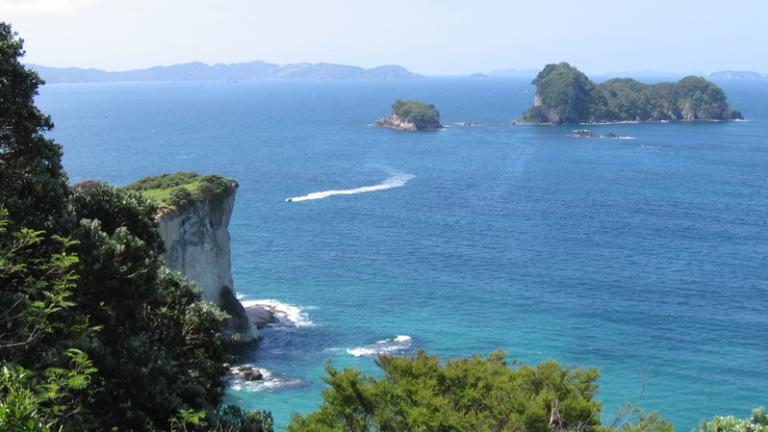
Focusing primarily on the period since 1500, this course explores the influence of climate, topography, plants, animals, and microorganisms on human history and the reciprocal influence of people on the environment.
Topics include the European encounter with the Americas, the impact of modern technology, and the historical roots of the current environmental crisis.
Content highlights: Reading list, discussion questions, lecture materials
Image rights: Mercury Bay in New Zealand is one location Captain James Cook landed during his exploratory expeditions. (Photo courtesy of BullockCart on Flickr. CC-BY-NC-SA)
Taught By: Prof. Harriet Ritvo






